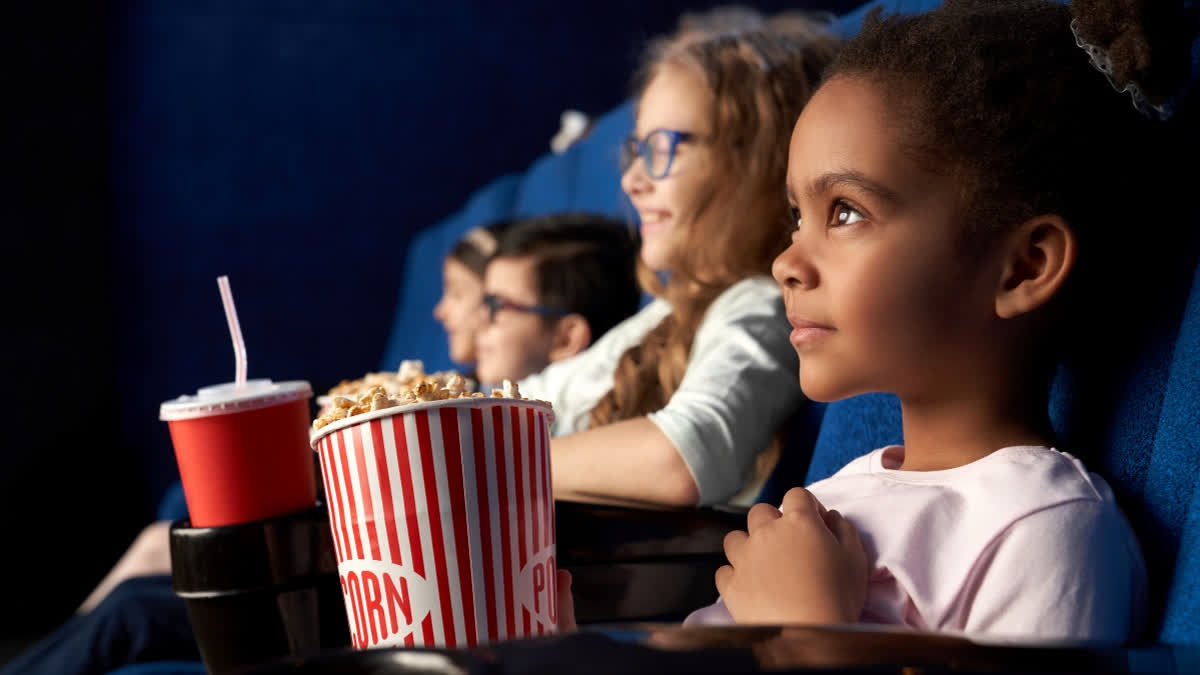Most of us often look at academic success as the sign of a child’s future. But if we look beyond the classroom, one of the most powerful tools for shaping a child’s emotional intelligence is something we take for granted – Films. As the saying goes, "seeing is believing; there is so much that we can teach children through storytelling, visual experience." A study done by Rebecca de Leeuw and Sophie H. Janicke in 2023 noted that movies can offer children insight about life, and inspire them with moral beauty and heroism.
Moreover, movies are more than just entertainment for children – they can be powerful tools for emotional development. Stories with diverse characters, challenges, and victories, help them underestand complex emotions, build empathy, and navigate social situations. "Children get affected and inspired with small things. Their cognitive function is at the developing stage which can be influenced easily. Exposing them to right kind of content can create lifelong impact on children. However, parents need to know what to show for the positive influence," says Psychologist Vidisha Sethi.
Recently, global star Priyanka Chopra Jonas also shared on social about her movie night with daughter Malti Marry Jonas, where the couple took went for a special screening of Moana. Whether it is cheering for a hero's courae, learning from a character's mistake, or feeling sad during a heartfelt moment in a character's like in the movie, movies can teach valuable lessons. We got in touch with Syed Sultan Ahmed, founder and chief learner at LXL Ideas to know how films can help children develope emotional intelligence.

Building empathy through character exploration
Children can build empathy by imagining themselves in someone else’s shoes. In mere 20 minutes of a short film, the children are introduced to so many diverse characters with distinct emotional journey. "By witnessing these characters face challenge, form relationships, and navigate personal growth, children are able to put themselves in other’s shoe," explains Ahmed. Understanding that different people experience different emotions builds compassion and sensitivity towards others.
Teaching conflict resolution
Conflicts are a central theme in almost every film – be it a drama, animated adventure or a heartfelt story. Children observe how characters approach and resolve conflicts - whether through dialogue, compromise, or understanding. These scenarios teach children the importance of managing and regulating their emotions and responding to disagreements in a constructive way.
Understanding emotional expressions
Character in the film express a wide range of emotions- joy, sadness, anger, fear, surprise and more. Children deeply observe these expressions. They can learn to identify and label their own emotions when they connect with a perticulat moment in the film. It also helps them to build emotional literacy, "making it easier for them to express and communicate how they feel in real life."

Building self awareness
Many films focus on personal growth showing characters who start the journey of self- discovery. Watching these stories helps children recognise their own strength, weaknesses and unique traits. They see films that showcase the life of their idol in short time span and understand that self-awareness is a lifelong process and facing challenges is a normal part of growing up. This boosts children's emotional intelligence and encourages them to understand their own emotional space. "It may not be explicitely but they do understand when they feel sad or what's something they feel good about," says Ahmed.
Buidling social skills and teamwork
Films highlight how relationships evolve over time from group dynamics to one-on-one friendships. Children gain insight into positive social behaviour like cooperation, communication, and trust through these films. These examples teach children the importancce of buiding healthy relationships, which is an essential aspect of emotional intelligence.

Providing a safe space for emotional exploration
Many a times, children struggle to talk about their feeling or label what they are feeling. Due to this inability, they are often misunderstood and grow into individuals who have become habitual of not communicating the intense emotions they go through. Films provide a safe and neutral space where they can explore difficult emotions without directly confronting them. Movies provide children a language to articulate their emotions and open up to adults about how they feel.
Buidling coping mechanisms
Most of the content that children consume (parents should ensure) show the protagonist overcoming adversities and how they cope with their emotions. It can be a hero overcoming fear or a team working together to solve problem, these narratives teach children the value of resilience. Growing up they learn that setbacks are a part of life and that emotional intelligence is key to overcoming life's challenges.
Read More:



